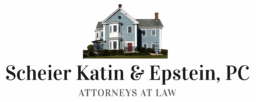The general bylaws of the Town of Acton direct how various aspects of the town are to be governed and administered.
Article 32: Town Meeting outlaws 2-cycle gas powered leaf blowers, partially in 2028, completely in 2029
To reduce noise and air pollution, Article 32 prohibits the use of gas-powered, 2-cycle leaf blowers. David Martin presented the article on behalf of the Select Board. He stated that gas leaf blowers can reach noise levels of 100 decibels (dB) at the machine and as much as 75dB fifty feet away. Two-cycle gas leaf blowers emit fossil fuel combustion pollutants including unburned hydrocarbons and particulates that can result in several medical risks including cancer, asthma, and heart disease. Four-stroke wheeled leaf blowers are exempt from the article.
The article proposed penalties for non-compliance: a written warning for a first offense, $100 fine for a second offense, and $300 for a third. The town manager would devise an enforcement strategy and can pause the by-law during extraordinary weather events that require heavy clean-up. The article states that in 2027, 2-cycle gas leaf blowers would be allowed only for two cleanup periods, spring and fall (3/15-5/31 and 9/15-12/31). In 2028 the blowers would be totally prohibited.
Mr. Martin stated that battery powered leaf blowers are readily available in residential and commercial models. He admitted that batteries are expensive and that commercial users (and some residential users) would need more than one battery per use, but that cost could be offset by not needing to buy gasoline. There are also fewer maintenance costs with electric blowers and, unlike gas blowers, electric leaf blowers do not idle. When an electric leaf blower is not blowing leaves, it is using no energy. He noted that several surrounding towns have successfully prohibited gas leaf blowers and that there are several wholly electric landscapers in business.
The Select Board voted unanimously to support the article. The Finance Committee recommended a no vote. They stated that technology of gas blowers is constantly improving and that our electricity is largely generated by natural gas plants. Rechargeable battery production requires the mining of lithium and cobalt and other substances that are not environmentally friendly. The FinCom disagreed with Mr. Martin that electric blowers are as robust as gas powered and they also mentioned restricting homeowners’ property rights.
This article was presented late during the second night of the Town Meeting and yet the crowd had dwindled very little. The debate lasted nearly fifty minutes and had over fifteen speakers. Arguments for supporting the article included noise reduction, cleaner air, healthier working conditions for Department of Public Works workers, landscapers, and homeowners, and lower operating costs. Arguments against included high initial costs, relatively low leaf blowing power of electric models, impinging of individual rights, environmental damage during mining of components of rechargeable batteries, and the waste of discarding existing gas blowers.
Two amendments were offered. The first would have delayed the implementation of the regulation by five years. The rationale was that battery technology would certainly improve. As an example, the average range of electric vehicles have gone from 130 miles in 2015 to 300 today. Concerns about tariffs and the current federal administration’s policies that could add costs to batteries was also brought up. In five years, a new administration policy could be different and battery costs would be lower due to better technology. This amendment was defeated. A similar amendment with a one-year delay was put forward, and the voters approved it.
The amended article was put to a vote. A simple majority was required for the article to pass. The vote was 149 for and 105 against. With the amendment, the final article states that two-cycle gas blowers can be used in 2028 only for spring and fall clean-ups and in 2029 they will be prohibited.
Article 33: Bylaw to require permitting before clearcutting large areas
This new Bylaw requires permitting to be completed before large swaths of land (roughly an acre) can be cleared for development.
After waiting for the room to quiet down, as many members of the audience left after Article 32 was passed, Select Board member Jim Snyder-Grant presented Article 33, which elicited many questions and comments, mostly to clarify exactly what landowners and property developers can or cannot do. Acton Planning Director, Kristen Guichard, was called to answer several questions.
During the discussion, Mr. Snyder-Grant noted a number of areas which would require additional rules and regulations. There will be opportunities for public comment and input.
Select Board member David Martin offered an amendment to section AF5 (exemptions) 5.2 to correct an oversight by adding the phrase “Acton-Boxborough Regional School District” to the exemptions. The amendment was discussed briefly, voted on, and passed.
The amended article passed, 136 – 32.
Jeff Brown is the business beat reporter for the Acton Exchange. Miriam Lezak is an Associate Editor of the Acton Exchange and an occasional writer.















